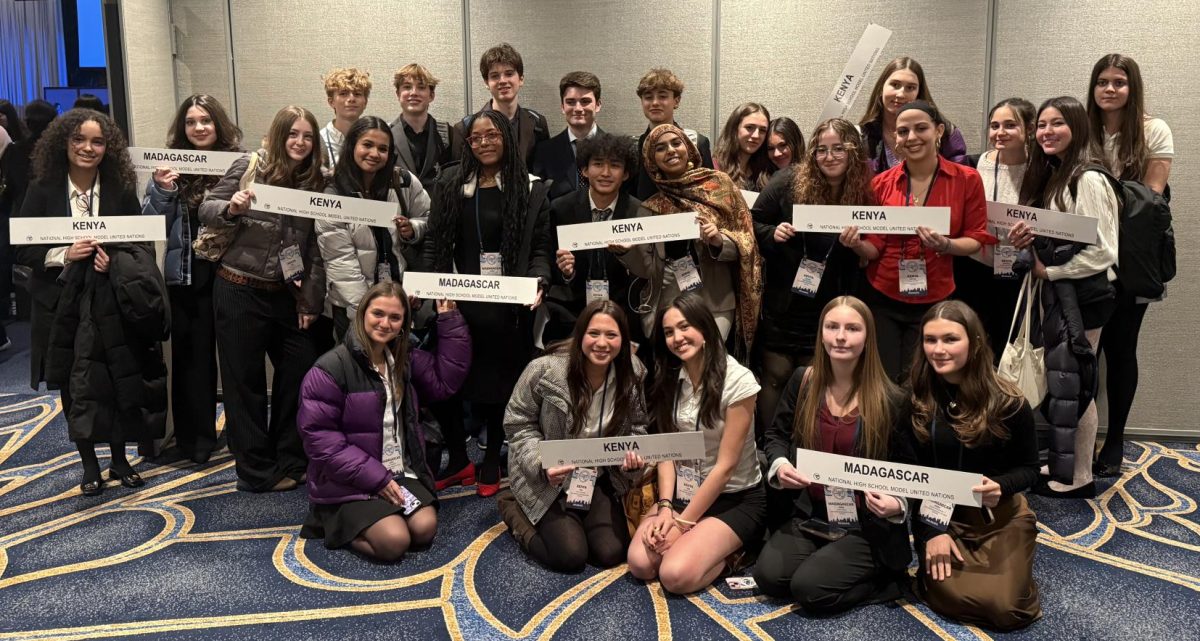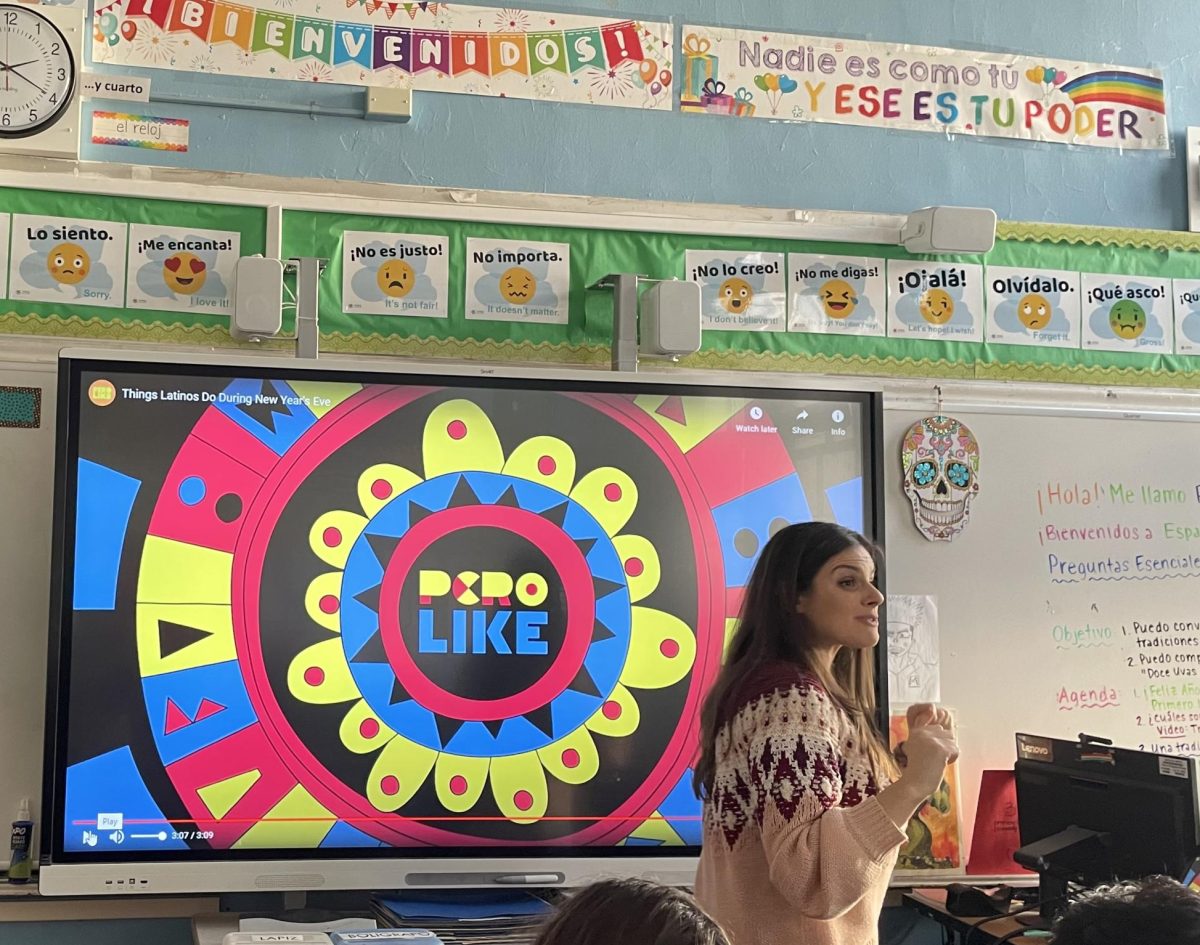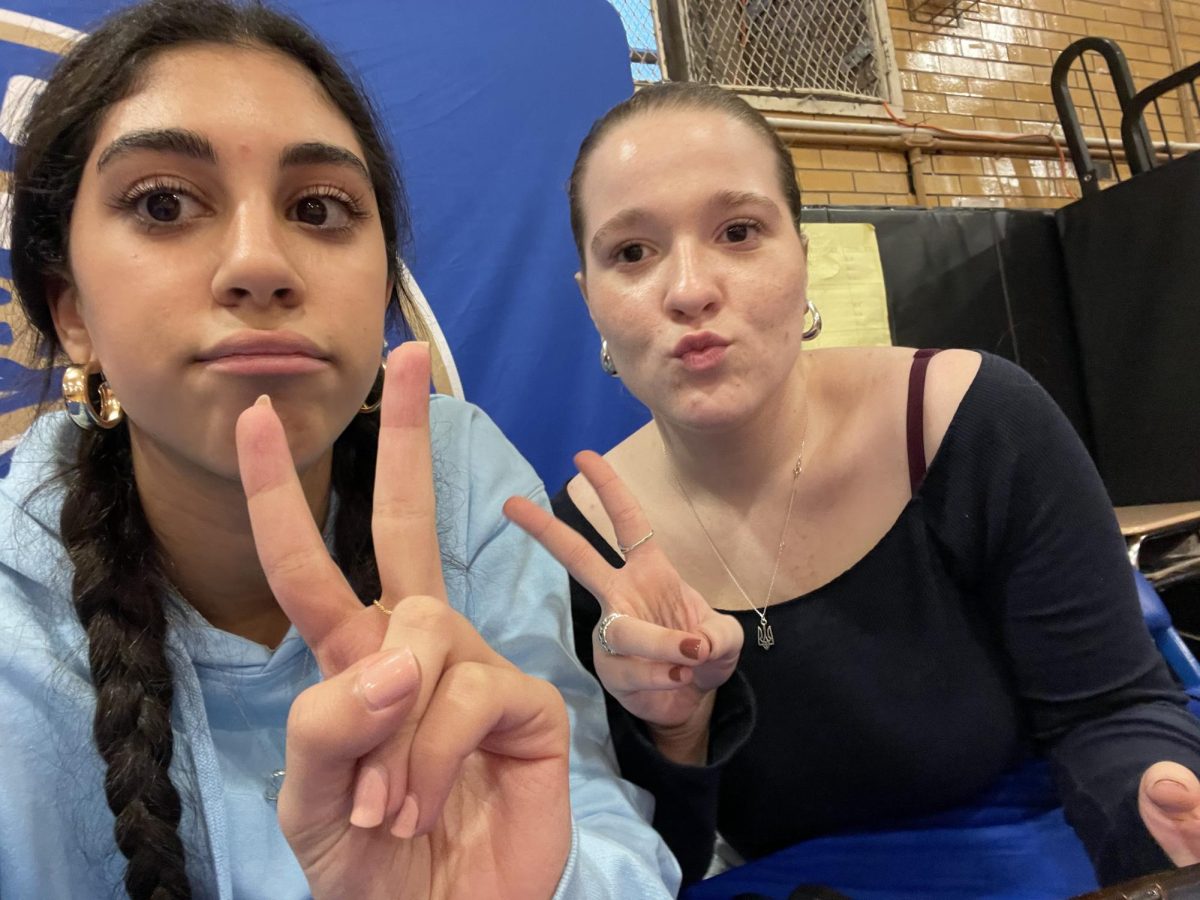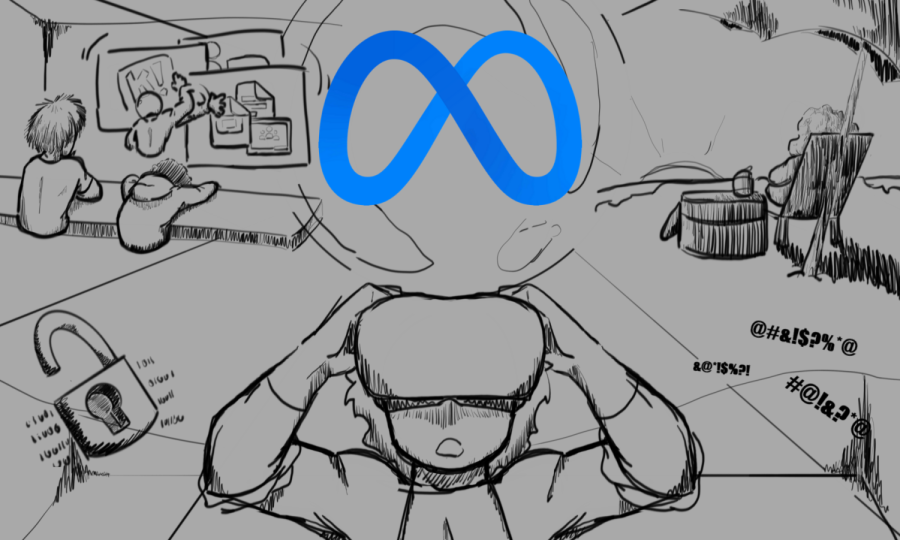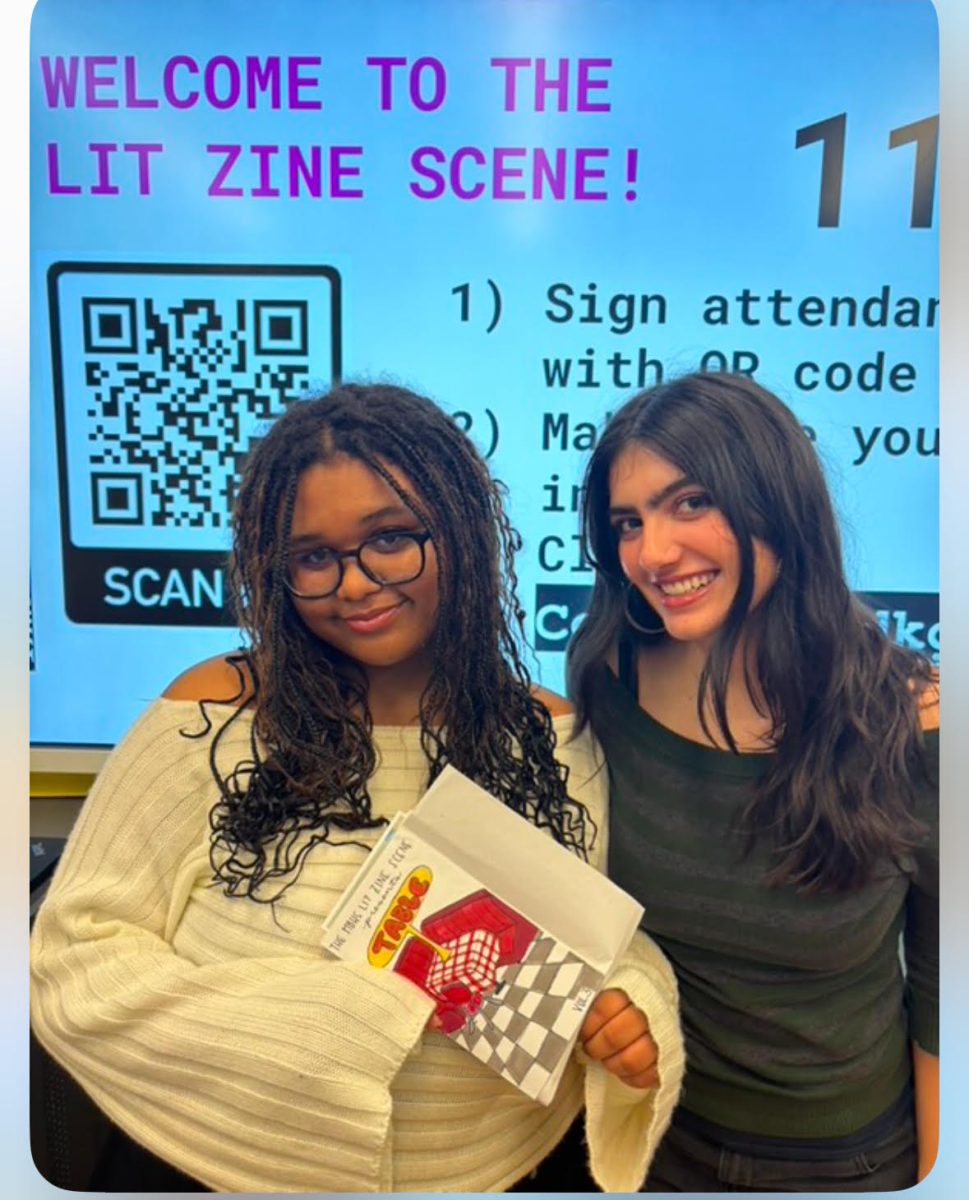Walking the halls of Millennium Brooklyn High School, you might hear a giddy student exclaim, “Guess who liked my post?!” Another might shout across a classroom, “I got 70 comments on my new TikTok!” On the surface, social media might seem a harmless way to connect us to each other. But there is a darker side that most students who post to their socials know.
Teenagers are wrapped up in drama so frequently that it is accepted as a normal aspect of high school. But gossip, particularly the kind that spreads like wildfire online, can spiral out of control and have psychologically damaging effects on students. MBHS guidance counselor Stephen Burd notes that consequences of social media for students can include bullying, disruption to sleep, reputation damage resulting from false rumors or distraction from their IRL social lives or academic goals. Burd says, “There are links between high levels of social media use and depression or anxiety.”
Whether we are using a computer in school or the phones we carry in our pockets, we are perpetually online. But interviews with students at Millennium reveal skepticism about the benefits of social media. A freshman at MBHS, Similoluwa Oniyide, notes, “A lot of people are on social media these days and a lot of people are also addicted to always being on trend which can really take a toll on a person’s mental health.”
Oliwa Strama, an 11th grader, says she and her peers are dangerously dependent on their phones. “People crave the need to know what [other] people are doing at all times. [This can make] them a bit crazy.” She notes that students “spend most of their learning on their phone or computers which is probably the reason this generation is so addicted.”
But social media can feel inescapable. Since its North American launch in 2018, TikTok’s popularity has exploded among teens. According to a new Pew Research Center survey of American teenagers aged 13 to 17, 67% of American teens use TikTok, for an average of 91 minutes daily. Teens find the product easy to navigate and entertaining with videos focused for any interest, ranging from dance routines to political activism. But critics of the app, from the tech industry and the federal government, worry teens are becoming addicted to its bite-size content which can often act as an echo chamber to vulnerable consumers. A recent advisory by the Surgeon General on the state of teens’ mental health warns that “children and adolescents who spend more than 3 hours a day on social media face double the risk of mental health problems” and that 46% of adolescents aged 13-17 report negative feelings about their body image as a result of scrolling on social media.
Brands and A-List celebrities often promote via TikTok in order to capture its captive audience with potentially damaging repercussions for younger consumers. For instance, the retailer Brandy Melville promotes itself to a large following on its TikTok account. The store only carries items it advertises as “one size fits all,” when in actuality their products are sized 0 to 2. While the brand’s target demographic is rich teenage girls of a particular body type, many followers don’t fit into that category. This promotion of an exclusionary ideal perpetuates an unrealistic idea of what girls should look like. The lack of diversity in Brandy Mellville’s models has also become an issue for the brand, though it’s not exclusive to this retailer. 9th grader Dasha Trofimov notes, “Brandy Mellville markets towards teenage girls [but] it’s not that they are saying one size fits all…. There are plenty of stores that…carry all sizes. But since teenage girls are impressionable, they could see it as saying that teenage girls are only supposed to be that size.” Facebook whistleblower Frances Haugen testified before Congress about the company’s affect on children, leaking a study that found that 13.5% of U.K teen girls in one survey say their suicidal thoughts became more frequent after starting on Instagram and that 17% of the girls said their eating disorders got worse after using Instagram.
There are seemingly few benefits to having social media so within reach. Rumor accounts spreading disinformation pop up constantly and the makers behind them seem to have no motive other than to stir trouble. “Sometimes I think people have nothing better to do with these accounts and are just really bored,” says Strama. Social accounts spreading unsubstantiated rumors about teachers and students in the Department of Education have popped up in recent years and are rarely censored. The lack of regulations on social media has allowed for the spread of gossip and dangerous falsehoods on the internet.
While students having easy access to social media may be a toxic recipe, some social media platforms can offer healthy opportunities for connection for people who feel alone. Burd explains, “Social media has positives as well as negatives. The positives allow teens to create online identities and communicate with others. This can be especially helpful for those who experience exclusion or who have disabilities.” Social media can also be a place to educate yourself on current events and share your expertise, provided you fact check yourself and your sources.
Nowadays, it is practically impossible to avoid social media entirely, since we all have access at our fingertips. But as Burd recommends, it is beneficial for your mental health to exercise boundaries between you and your phone. According to the Community Access Network, putting your phone away in school, or during dinner is a way to distance yourself from scrolling through Instagram or liking other peoples comments. If we practice these healthy habits, we teens can utilize social media, but responsibly.
